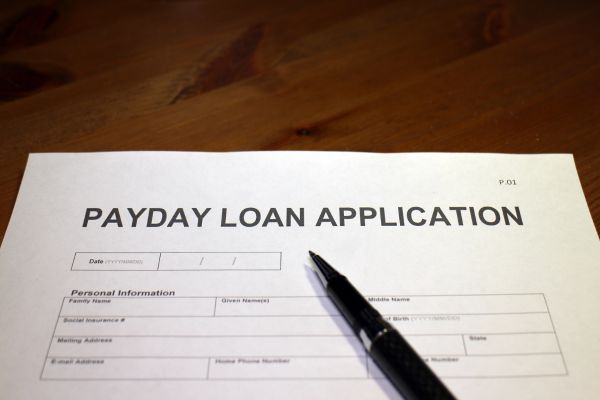Let’s be real—payday loans are one of those topics that can spark heated debates at dinner tables, in state legislatures, and even online forums. Some see them as a lifeline during emergencies. Others? A trap that can spiral borrowers into endless cycles of debt. The truth usually falls somewhere in the middle, and that’s why payday loan regulations by state matter so much.
If you’ve ever wondered why payday loans are easy to grab in some states but practically impossible in others, it all boils down to how each state writes and enforces its own rules. Let’s dive in and break it down.
Why States Regulate Payday Loans Differently
Here’s the thing: payday lending isn’t federally regulated in the same way credit cards or mortgages are. Instead, states are the ones setting the boundaries. That means the rules in Texas look completely different from the rules in New York. Some states cap interest rates, others ban payday loans outright, and a few allow lenders to operate with minimal restrictions.
This patchwork system exists because states want the power to protect their residents while still allowing access to quick cash when emergencies hit. And since the financial needs (and politics) of states differ, the rules naturally do too.
States That Ban Payday Loans
A handful of states have taken a hard stance: no payday lending at all. For example, New York, New Jersey, and Connecticut have outlawed payday loans entirely. Their reasoning? The interest rates are often sky-high—sometimes equivalent to 300% APR or more—and that can trap people in a debt cycle that’s tough to escape.
Instead of payday loans, residents in these states are encouraged to use alternatives like credit unions, installment loans, or emergency assistance programs. Sure, that can feel restrictive, but the idea is to shield borrowers from predatory lending practices.
States That Allow Payday Loans with Limits
Now, let’s talk about the middle ground. Some states do allow payday loans but with strict regulations in place. They might set:
- Caps on interest rates (for example, 36% APR in Colorado)
- Limits on how much someone can borrow at one time
- Rules about how many loans a person can take out per year
- Requirements that lenders be licensed and transparent about fees
Take Colorado again as an example. After payday loan reforms, lenders have to structure loans as six-month installment plans rather than two-week payback cycles. The idea is simple—give borrowers more breathing room and reduce the chance of defaulting.
States With Looser Payday Loan Rules
Then there are states that take a lighter regulatory approach, leaving borrowers with fewer protections. Think places like Texas or Nevada, where payday loans are legal and fairly easy to obtain. In these states, lenders can often charge triple-digit APRs, and loan rollovers (renewing one payday loan with another) may still be permitted.
Critics argue this system preys on vulnerable borrowers. Supporters counter that it gives people access to fast money when no other options are available. You can probably see why this continues to be such a hot-button issue.
Why Payday Loan Regulations by State Matter for You
If you’re considering a payday loan, where you live makes all the difference. A borrower in Ohio may pay far less in fees compared to someone in Nevada. And if you move states? Well, the rules don’t move with you. Suddenly, what was legal in one place might not even exist in another.
This isn’t just about protecting wallets—it’s about financial stability. Strong regulations can help borrowers avoid endless cycles of rollover loans, while weaker ones might leave people paying back way more than they originally borrowed.
Alternatives That Are Growing Nationwide
Here’s some good news: even in states that allow payday loans, alternatives are popping up. Many credit unions now offer “payday alternative loans” with much lower interest rates. Employers are rolling out paycheck advances or emergency loan programs. And let’s not forget online banks and fintech apps, which are getting creative about short-term lending without the massive fees.
In states with bans, these alternatives aren’t just nice to have—they’re essential. They give people quick access to funds without the danger of sinking deeper into debt.
The Future of Payday Loan Regulations by State
So, where are things headed? Well, it looks like payday loan regulations by state will keep shifting. Some states are tightening the screws, capping APRs, and forcing lenders to rethink their models. Others are leaving things wide open.
There’s also increasing pressure from consumer protection advocates who want a national cap on payday loan interest rates. But since payday lending has traditionally been a state-controlled issue, federal action is tricky and often controversial.
What’s more likely is a continued trend toward innovation—more credit unions, more employer programs, and more fintech apps giving borrowers safer, cheaper alternatives. That doesn’t mean payday loans are disappearing anytime soon, but it does mean the options are expanding.
Final Thoughts
At the end of the day, payday loan regulations by state shape whether these loans are a quick fix or a long-term problem. Some states outlaw them, others regulate them, and a few let the industry run with fewer restrictions.
If you’re thinking about a payday loan, the smartest move is to first check the rules in your state. Know the interest caps, the repayment terms, and your rights as a borrower. And even if payday loans are legal where you live, consider alternatives—they might save you a whole lot of money and stress.
Because let’s be real—emergencies happen, but nobody wants to pay back a $300 loan with $900 in fees. And that’s exactly why payday loan regulations by state matter so much.

